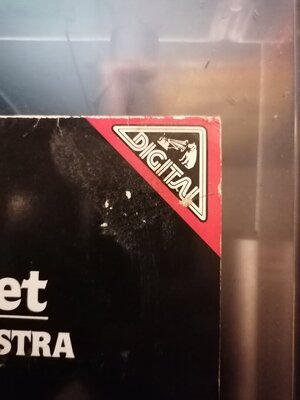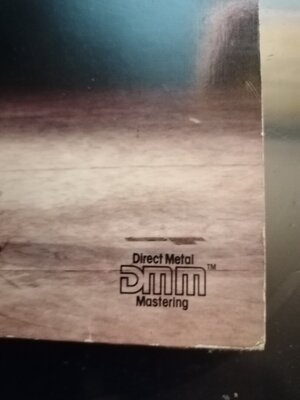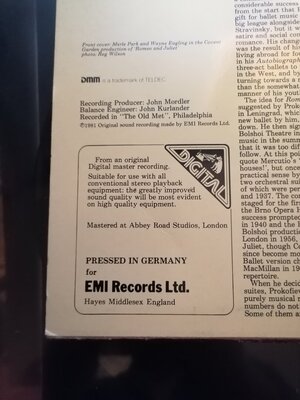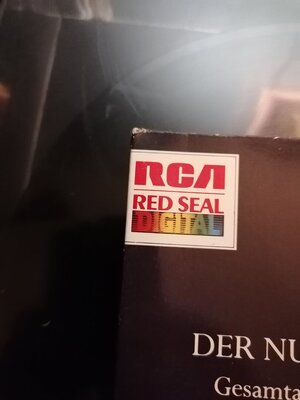Yes, CD was produced to give higher quality sound. It preserves more of the original recording, while vinyl doesn't. I can't believe you think early CDs were analogue. It's a digital format. CD has the resolution to capture most of the information held on tape. It's a closer approximation than vinyl. Vinyl cannot hold the same amount of information as CD. When you transfer an analogue recording to vinyl, it doesn't have the capacity to hold this information. CD is able to hold more information transferred from analogue tapes. It really is incredible that people still insist vinyl is a better format than a more recent one, such as CD. People don't like CD, because it reveals the limitations of poor recordings, while vinyl will flatter these shortcomings. If you don't like CD, you're listening to poor recordings. New studio recordings on CD sound amazing and are totally wasted on vinyl. Every single technical aspect of CD is superior to vinyl. These are facts and I still believe the reason people are fixated with vinyl is because of the ritual and 'lifestyle' associated with this format. People bang on about the sleeve notes and the packaging. That's fine if you are into this stuff, but it doesn't add anything to the sound quality.
Technically, CDs are neither digital nor analog. However, they can be considered both simultaneously. Until read and compiled by a computer, CDs are essentially nothing.
It is not solely because CDs sound better that CD where created, increased durability was a massive driving force with CD’s development. they also have numerous industrial applications as we all know. The primary factor was their cost-effectiveness and speed of manufacture and thats the bottom line. Its could have easily been a poor VHS type product but it just so happened they actually sound pretty good.
Vinyl records cannot store the same amount of data we no know this everybody knows this. However, CDs and digital media have been repeatedly compromised by the “loudness wars.” While I am not suggesting vinyl is a superior format, the limitations imposed by the format make it a more preferable medium in some cases. For instance, Death Magnetic’s vinyl pressing actually sounds better than its 2000s CD release. The CD is unlistenable by comparison.
“
New studio recordings on CD sound amazing and are totally wasted on vinyl.” Are they? As mentioned above, it is not always a given. It is not as straightforward as that. I have music that sounds great on pre recorded mini discs, even the early examples of which are extremely compressed to fit on the medium. Even the humble cassette had its moments and Id put them up against CD counter part and challenge you to tell them apart.
Additionally, I own some modern vinyl that sounds incredible. Leftfield’s “Rhythm and Stealth” is much better sounding than its 1998/1999 CD release. DJ Shadow’s “Introducing” received an incredible remaster on vinyl that is not available on CD and there is no ticks or pops again id challenge you to tell what medium its being played back on in blind test. But granted there are some CDs that sound out of this world but in my experience especially in the POP mainstream its a rare experience.
It is evident why individuals prefer vinyl records over streaming services. Contrary to popular belief, it is not solely driven by nostalgia, as many individuals in their thirties grew up with digital music and transitioned to low-quality streaming options iTunes for example. The primary reason for vinyl’s appeal lies in its superior sound quality compared to streaming services like Spotify. For these individuals, CDs are considered “old hat,” while vinyl represents a novel and tactile experience that most of those 30 somethings have never experienced.
Some may argue that streaming services offer a more convenient and accessible listening experience. However, it is important to note that vinyl offer a unique and immersive listening experience, you cant just skip to a track and dot around all over the place, you have to listen you have to engage. The mechanical needle employed in vinyl playback contributes to the overall sound quality, allowing for greater control over the listening experience allowing you to tune to taste. So yes it does add to the sound quality experience.
While personal preferences play a role in media consumption, it is undeniable that vinyl records provide a more substantial support for artists compared to streaming services. By purchasing CDs or vinyl records, individuals can directly contribute to the success of lesser-known artists and thats a great thing and maybe thats major contributor to vinyl resurgence as its been suggested many dont listen to there purchases, treating them more like posters than media so there's that.
As I said above its just another Bob trying to tell me/us how to enjoy our hobby.





